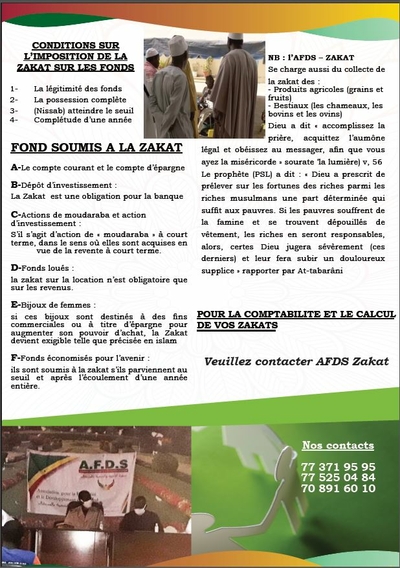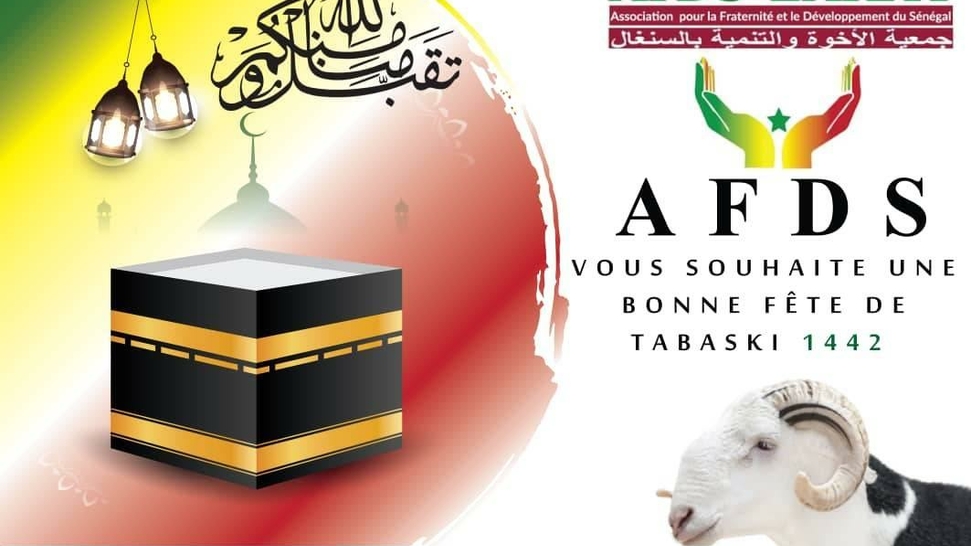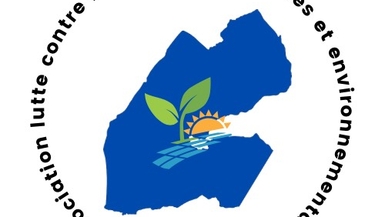Campaign Status
Ongoing Offline: The campaign is currently ongoing offline and, thus still in the process of collecting funds.
Summary
The campaign aims to support 600 people through funds for education, health, and other basic social needs.
Challenge
For several years, AFDS has been implementing activities aimed at better organizing the collection and distribution of Zakatoul Fitr. The initial editions of the Zakatoul Fitr collection campaign were conducted in test areas with the intention of scaling up in the future.
Furthermore, studies have also revealed that 96% of Senegalese declare that they pay Zakatoul Fitr, which is a remarkable and intriguing statistic. However, it is common, during holidays, to encounter beggars in the streets and at the entrances of mosques. This, to some extent, indicates the ineffectiveness of this practice of Zakat payment by Senegalese. One of the primary objectives of establishing this type of Zakat is to prevent the poor from begging on the day of the festival.
Therefore, AFDS believes that well-organized collection and distribution of Zakatoul Fitr will significantly contribute to realizing the Islamic vision of eliminating begging on holidays. This underscores the importance and relevance of this campaign, which will be in its 5th edition in 2023.
In the Senegalese context, Zakatoul Fitr remains well-known and is widely practiced by Senegalese Muslims. However, in a context of poverty and inequality, it's clear that the fundamental objective of this religious obligation is often not met. It's common to encounter people begging in public places like mosques and markets during holidays, such as Eid al-Fitr. Building on this, AFDS has been implementing activities for several years to better organize the collection and distribution of Zakatoul Fitr in test areas, with the intention of expanding its reach in the future.
Zakat, as the third pillar of Islam, was established very early in Muslim society. In fact, it was introduced during the second year of the Hegira of the Prophet Muhammad, peace and blessings be upon him (PBUH), in Medina, with the directive to "take from their wealth an alms by which you purify them and purify them." It serves as an essential instrument of cooperation and solidarity within the Muslim religion. With the evolution of knowledge and practices, it has become an integral part of the Islamic economy, categorized alongside Waqf and, to some extent, Islamic microfinance.
In the Senegalese context, where the introduction of Islam dates back to the 10th century, it is quite natural for the payment of Zakat to be a part of the daily practices of the Senegalese, who are predominantly Muslim, with over 95% adhering to the faith. Furthermore, to encourage people to honor this pillar of Islam, many sermons and reminders on the theme of Zakat are available between the month of Ramadan and that of Muharram.
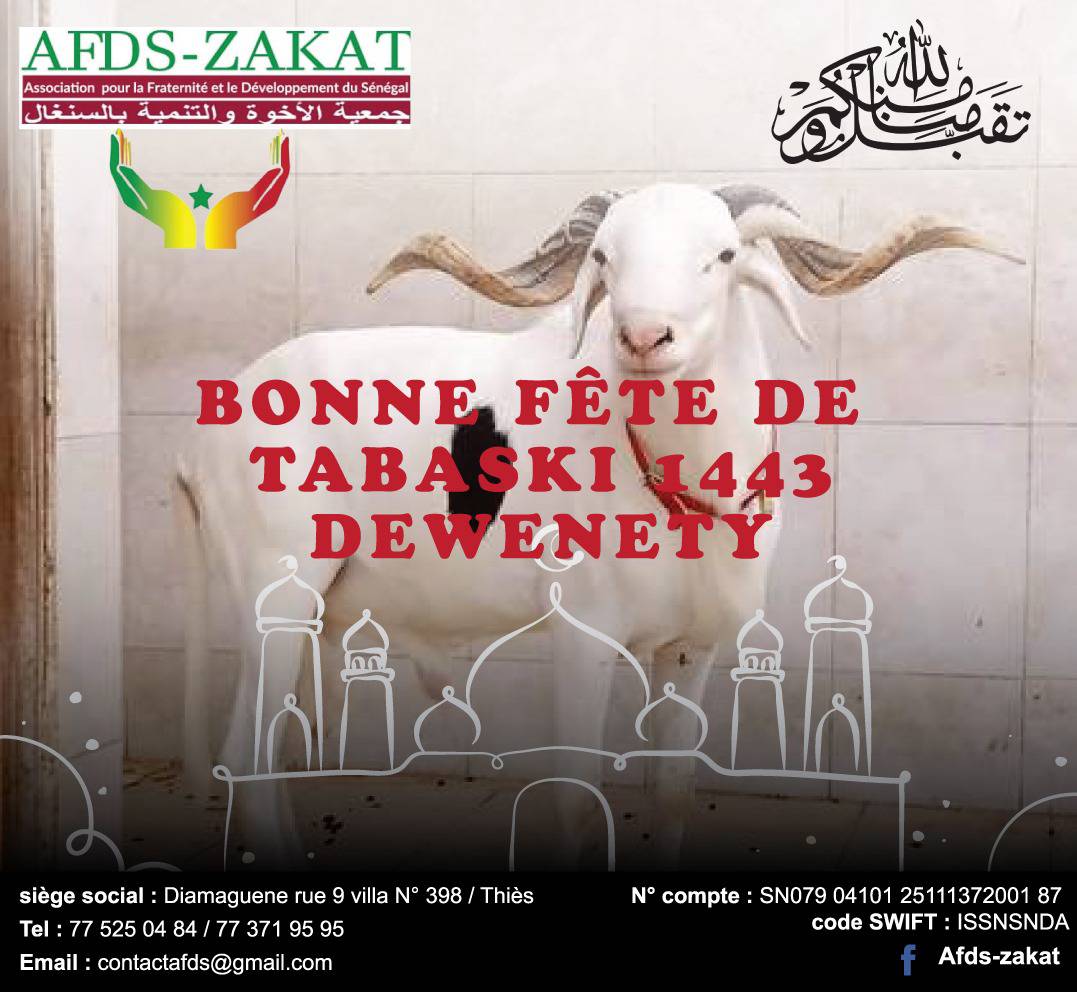
Solution
The objective is to raise funds for financing economic projects that empower beneficiaries to become self-reliant. Building on its experience in collecting zakat, the organization will enhance fundraising efforts. A portion of the funds raised will be allocated to essential social needs such as education, health, subsistence, and support during religious holidays.
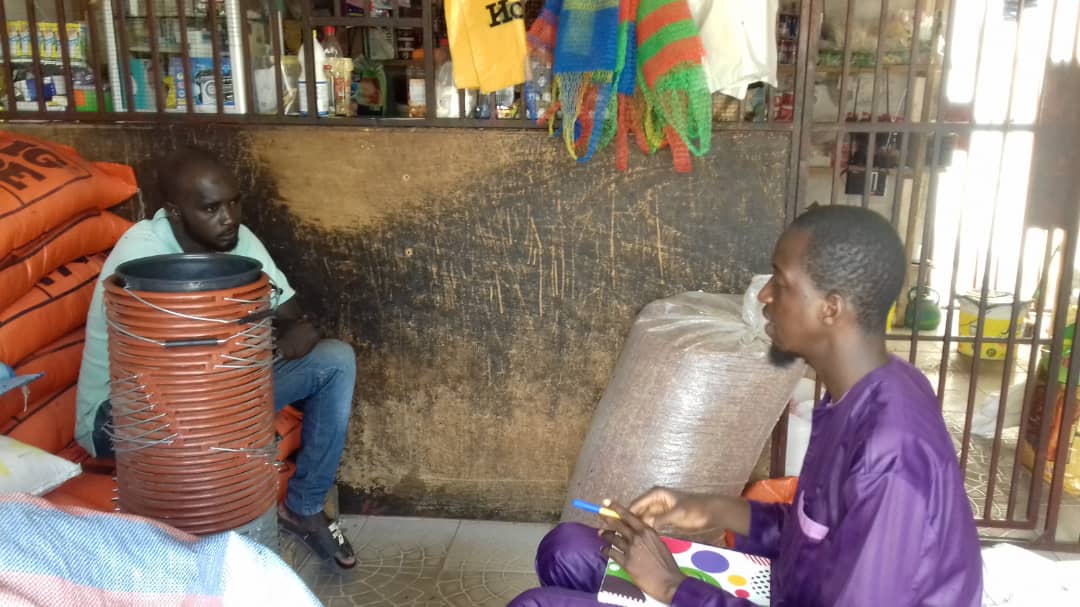
The AFDS recognizes that effective organization in the collection and distribution of Zakat ul Fitr can significantly contribute to realizing the vision of Islam, where there is no begging during the holidays.
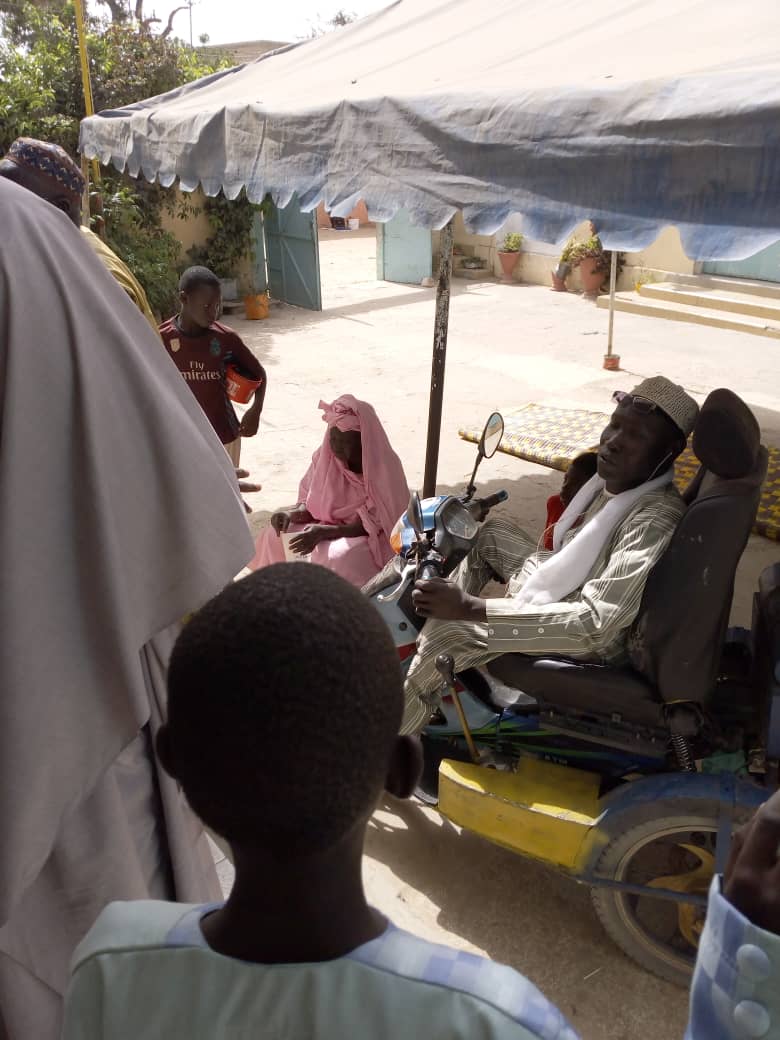
This underscores the importance and relevance of this campaign, now in its 5th edition in 2023.
Simultaneously, the campaign will also provide support for young entrepreneurs and women.
